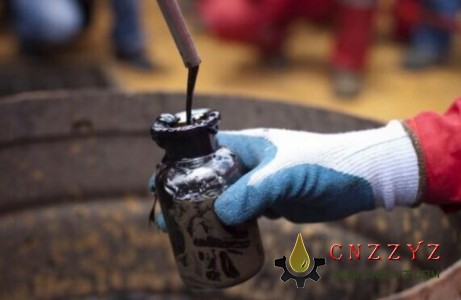石油设备网讯 据今日油价网站5月29日消息 俄罗斯第一副石油部长安东·西卢诺夫周三对路透社表示,俄罗斯可能会加入在去年年底与欧佩克达成的延长石油产量协议。其考虑的最重要问题是与美国生产商潜在的市场份额损失相比,石油价格将如何变化。
西卢诺夫表示:“无论是赞成还是反对减产延期,都有很多论据支撑。当然,我们需要价格稳定和可预测性,这是好事。但我们看到,与欧佩克达成的所有这些协议都会导致美国合作伙伴提高页岩油产量,并抢占新市场。”
2018年12月,欧佩克、俄罗斯和其他几个规模较小的生产商签署了一项协议,旨在将全球供应量减少120万桶/日,以支撑持续的低价格。然而在削减措施完成后,油价上涨。
沙特阿拉伯是第一个提到将减产时间延长至6月底之前可能的国家,尽管有市场份额损失的危险,沙特阿拉伯仍在努力提高油价。事实上,由于炼油厂需要快速弥补损失的石油,沙特一直在提高其在亚洲的市场份额。
本月早些时候,有消息称,一些欧佩克成员国支持将减产延长至年底,因为担心如果减产在6月结束,价格将大幅下跌。
这种担忧有一些理由:重新引发的对全球经济放缓的担忧,这将抑制石油需求,美国的产量继续推高,限制了基准的看涨潜力。
欧佩克及其非欧佩克伙伴将于下周在维也纳举行会议,讨论在莫斯科要求重新安排原定于6月下旬会议之后的下一步行动。
王磊 摘译自 今日油价
原文如下:
Russia Considers Accepting OPEC Cuts Extension
Russia may join a proposed extension of the oil production cuts agreed with OPEC at the end of last year, First Deputy Oil Minister Anton Siluanov told Reuters today. The most important issue to consider is what the oil price gains would be from an extension as opposed to the potential loss of market share to U.S. producers.
“There are many arguments both in favor of the extension and against it,” Siluanov said, adding “Of course, we need price stability and predictability, this is good. But we see that all these deals with OPEC result in our American partners boosting shale oil output and grabbing new markets.”
The December 2018 agreement between OPEC, Russia and several other smaller producers aimed to reduce global supply by 1.2 million bpd to prop up stubbornly low prices. .
Saudi Arabia was the first to mention the possibility of extending the production cuts beyond their original end-June expiry as it strives for even higher oil prices despite the danger of market share loss. In fact, the Kingdom has been boosting its market share in Asia as refiners need a quick replacement for lost barrels.
Earlier this month, it emerged that several OPEC members were in favor of extending the production cuts to the end of the year for fear that prices will drop sharply if the cuts are ended in June.
There are some grounds for this fear: Renewing the worry about a global economic slowdown that will dampen oil demand, and U.S. production continues to push higher, capping the bullish potential for benchmarks.
OPEC and its non-OPEC partners are meeting next week in Vienna to discuss next steps after the meetings, originally scheduled for late June, were rescheduled at the request of Moscow.






